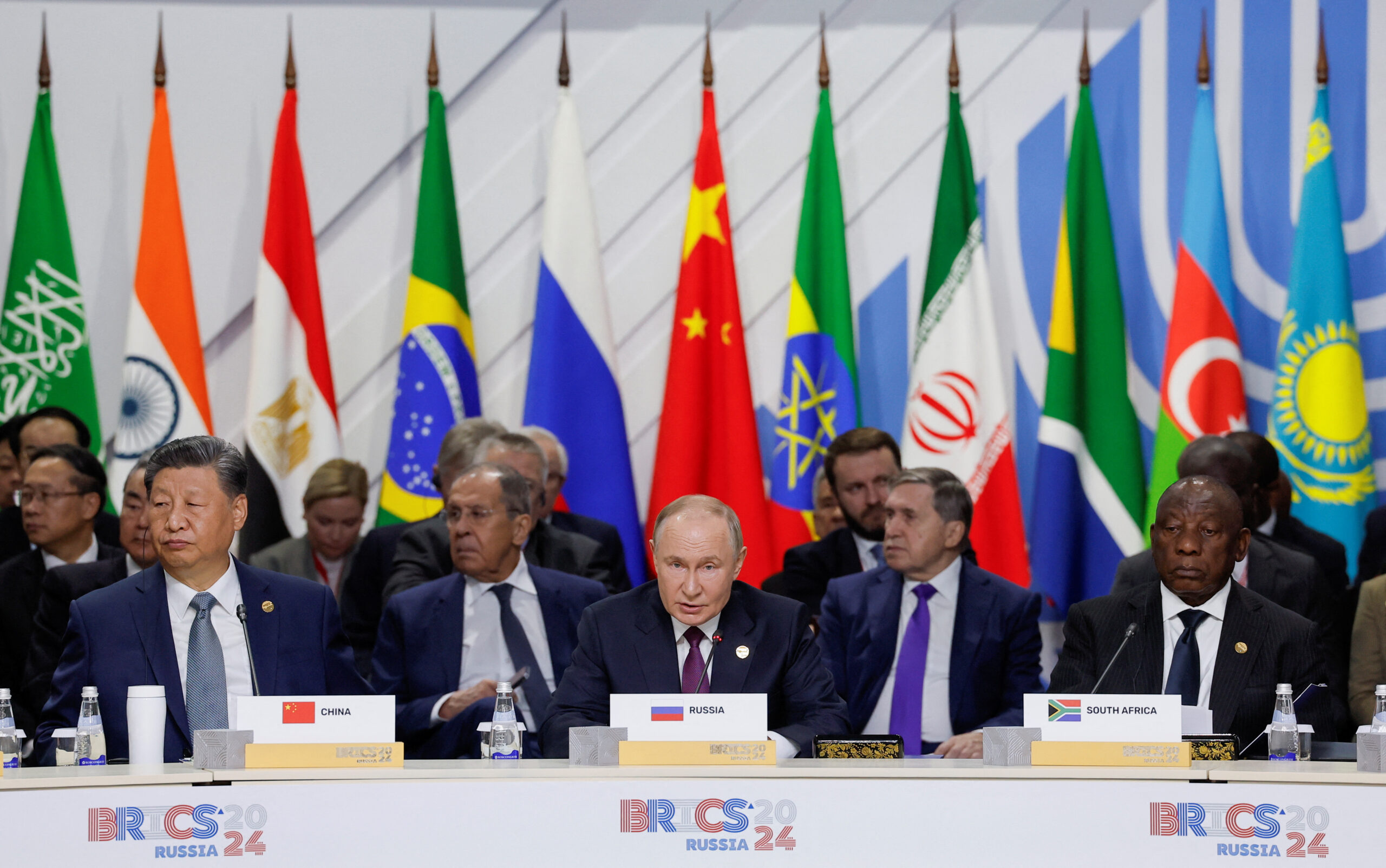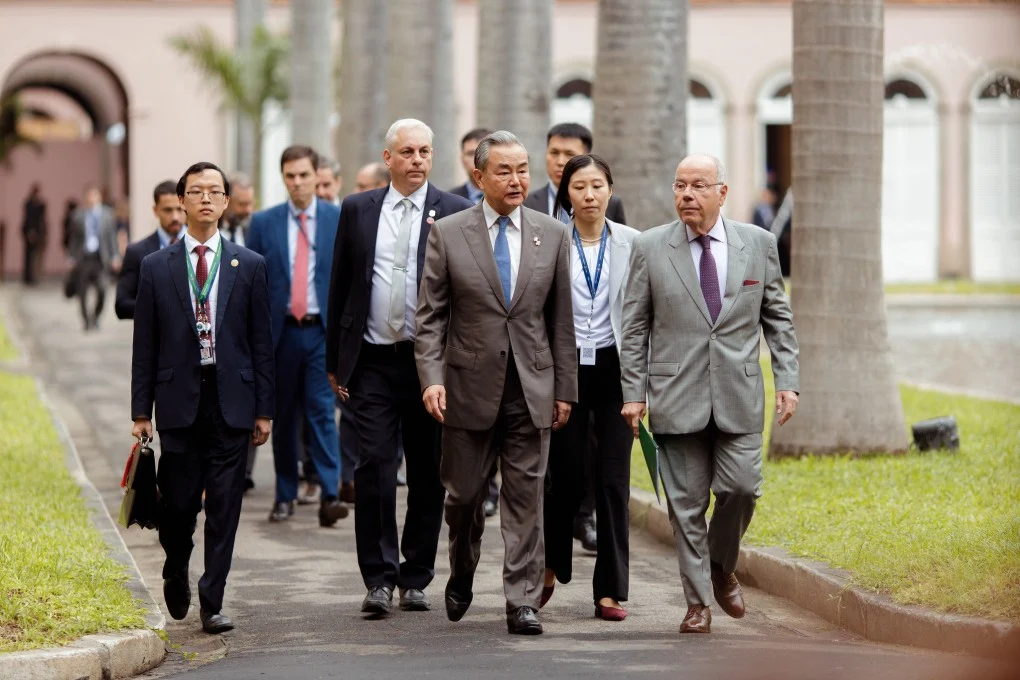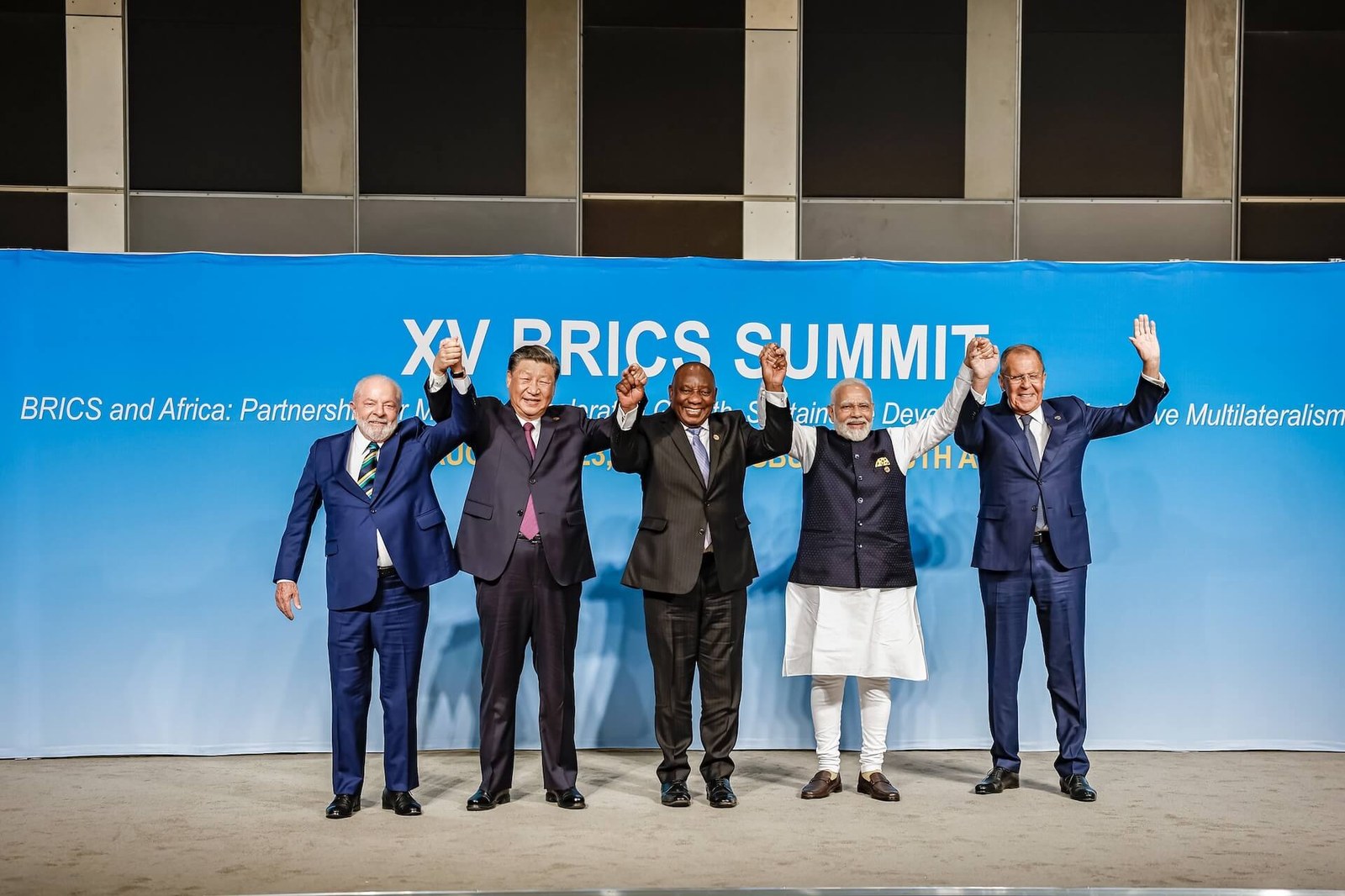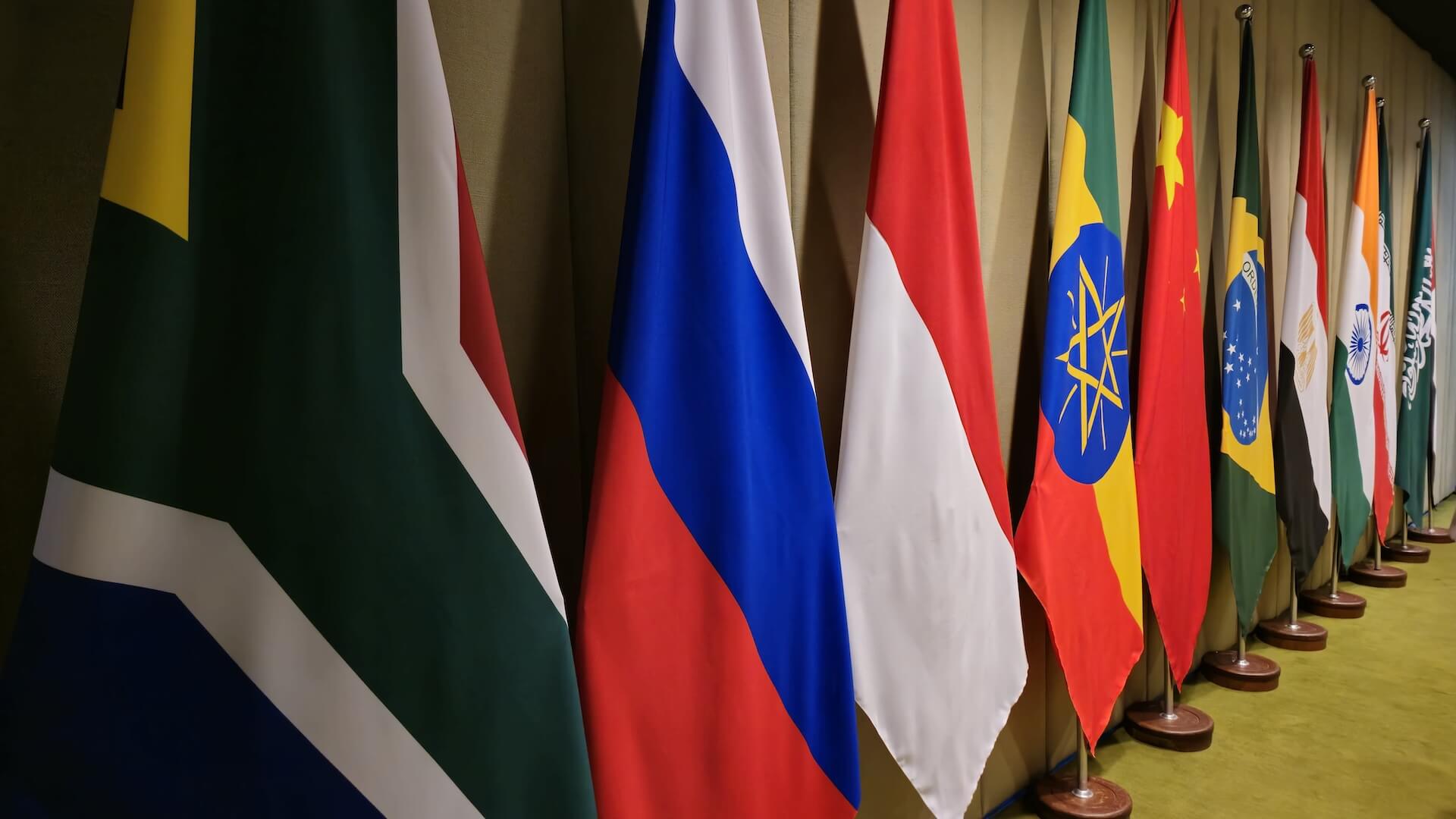By Musanjufu Benjamin Kavubu
Many experts have reduced BRICS to a mood, Economists are even saying dollarisation is a myth for left sympathisers and a new enchantment for the global South. Those who take it seriously see it as a threat to the World Bank and the IMF, the former dealing with short-term development plans across the world and the latter dealing with long term fiscal policies, this sets the dollar as the global leading currency and a tool for Western hegemony.
The USA’s economy is based on their military might and NATO. As the world changes there have been many developments and to counter Western led multilateral groups the global South has BRICS, which as of 2023 expanded to 10 countries.
The current BRICS Summit is today 22nd to the 24th of October 2024. For starters it’s reported that 34 countries in one form or another have applied to join the group. The is being viewed as a counter to the G7 and it’s taking even a grander shape on the security front which is a key pillar of its founding.
From the 10th of September to the 12th 2024 the Russian President Vladimir Putin hosted a meeting of National Security Advisors of all the members of the BRICS and that meeting was under the organization’s Political and Security Pillar of Cooperation. There are about 53 conflicts raging in the world today, the Russia-Ukraine and the Israeli brutal occupation of Palestine are the most outstanding causing seismic Geopolitical shockwaves world over. These conflicts disrupt global supply chains that are very vital to globalization in terms of trade especially amongst BRICS and the global South.
Let’s understand what Supply Chains and Geopolitics are first. A supply chain is the network of organizations, people, activities, information, and resources involved in the creation and delivery of a product or service from the supplier of raw materials to the end customer. It encompasses all the processes involved in sourcing raw materials, manufacturing, logistics, distribution, and retail, including the management of these activities to ensure efficiency, cost-effectiveness, and customer satisfaction. Basically the definition of Supply Chains can be swapped for the essence of the Belt and Road Initiative by China that is now a decade and has facilitate development of the world in general.
On the other hand Geopolitics that refers to how geographical factors, such as location, natural resources, and physical terrain, influence the political power, decisions, and relationships between countries basically international relations. Geopolitics is how nations use their geographical advantages and go about challenges to pursue economic, military, and strategic goals on the global stage. If you look at the foundation of BRICS, you will notice how geography affects global politics and international relations.
Security situations throughout history have proven far and wide effects across the world, effects on every aspect of life, from social to economic. And in the last about 24 months there have been military drills amongst BRICS members aimed at safe guarding trade routes and ensure smooth flow of supply chains that are vital for humans civilization. In 2023 the Russian and South African Navies got together for a drill, in the Second quarter of 2024 the Russian Navy conducted drills with Cuba a vital global South country and very recently the Chinese Navy joined Russia for the Ocean 2024 drill. These drills are aimed to prepare for eventualities that may affect sea trade routes, that’s why they were conducted in the Arctic, Mediterranean, Pacific, Caspian and Baltic water ways.
The world geography has these areas that are prone to military and naval blockages during times of conflicts. Areas like the Strait of Hormuz controlled Largely by Iran and BRICS member in the Middle East, connects the Persian Gulf to the Arabian Sea vital for global oil supply a lot of it ending China. It one the reasons China had to bring Saudi Arabia and Iran together through its Global Security Initiative GSI for normalizing diplomatic relations. The Strait of Malacca connecting the Indian Ocean to the South China Sea, essential for trade between Asia and Europe. The Suez Canal that connects the Mediterranean Sea to the Red Sea helping to bypass the longer route around Africa. The Bab el-Mandeb Strait between Yemen and Djibouti, connects the Red Sea to the Gulf of Aden, vital for shipping between Europe and Asia, has almost all major Navies operating in the area.
The Panama Canal that Connects the Atlantic and Pacific Ocean, Bosporus and Dardanelles Straits in Turkey a member of NATO but also seeking BRICS membership bridges the Black Sea to the Mediterranean, vital for Russian and Eastern European exports. The Cape of Good Hope on the South African coast serves as an alternative route if the Suez Canal is blocked, crucial for global trade. The Lombok Strait in Indonesia which is an alternative to the Strait of Malacca. All are Geopolitical chock points that are pivotal to global supply chains.
As the new world order faces off with the Western hegemony and developments like the BRICS bank being formed to counter the Bretton Woods another aspect is brought into play. Which is Geoeconomics that is basically about how countries use economic tools, policies, and strategies to advance their geopolitical goals. These tools range from trade agreements and investments for example the $ 50 Billion announced at FOCAC 9 in Beijing, to control over vital resources, like energy or rare earth metals.
Economic strength is a powerful asset in shaping global political power and achieving strategic ambitions. Sadly the West led by the USA and the whole EU see sanctions as the best tool to further this endvour. Today USA sanctions are used to disrupt global South supply chains which hinders development. It’s through embargoes that supply chains have taken the hit affecting even the most basic of traders in your local market to all kinds of consumers.
Supply Chains controls and disruptions even take extreme measures for example the latest case of Israeli operations in Lebanon, when a whole supply chains was compromised to plant explosives across the country.
The cross roads of supply chains, geopolitics, and geoeconomics is going to shape the Multipolar world order, and the BRICS formation as a counterbalance to Western hegemony. Its going to take everything for example naval drills and economic partnerships. Multipolarity is going to redefine everything. The current situations, mostly driven by the West, show how supply chains are no longer just about movement of goods but affect every aspect of modern human civilization.
Benjamin is a research fellow at the Development Watch Centre.



